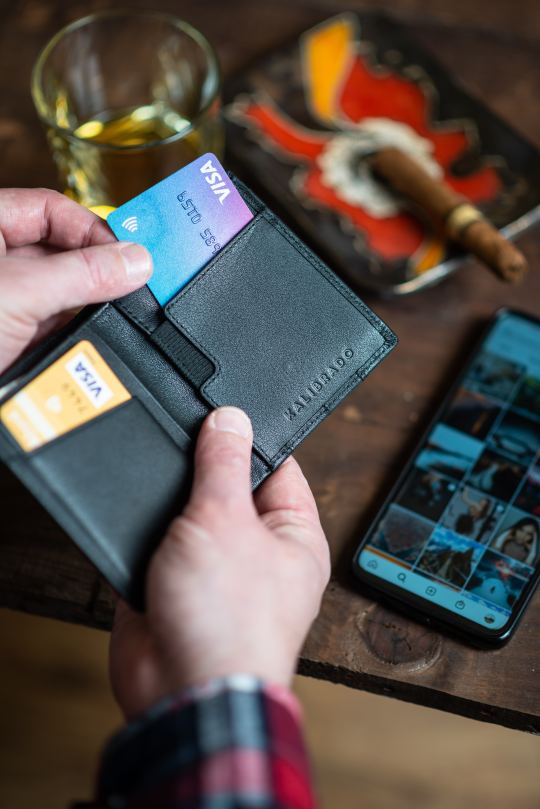#secured and unsecured loans
Text
Secured And Unsecured Debt: Meaning And Benefits

When it comes to borrowing money, you might come across terms like "secured" and "unsecured" debt. What do they mean, and how do they affect you? Let's dive in and find out!
Secured Debt: Putting Up Collateral
When you hear the word "secured," think of something being backed up or protected. In the context of debt, secured loans require you to provide collateral. Collateral is like a security blanket for lenders – it's something valuable that you pledge to give them if you can't repay the loan. Common examples of collateral include your house, car, or any other valuable asset.
Also Read: Why Unsecured Business Loans Have Become Popular In India?
The Benefits of Secured Debt
Secured debt offers a couple of benefits. First, since you're offering collateral, lenders consider it less risky to lend you money. Because of this reduced risk, secured loans often come with lower interest rates. Plus, you may have a longer repayment period, making your monthly payments more manageable.
Unsecured Debt: No Collateral Required
Now, let's talk about unsecured debt. This type of debt doesn't require any collateral. That means you don't have to put your precious belongings on the line. Examples of unsecured debt include credit card debt, personal loans, and medical bills.
Also Read: Top 5 Factors Affecting Your CIBIL Score
The Benefits of Unsecured Debt
Unsecured Debt has its own set of benefits. One of the most important is the absence of collateral. This eliminates the risk of losing your vehicle or home if you experience financial hardship and are unable to make repayments. Unsecured debt also generally does not require a long and complicated application process, making it easier and faster to obtain.
Choosing the Right Type of Debt
So, which type of debt should you choose? Well, it depends on your situation and needs. If you have valuable assets and need a large loan, a secured loan might be the way to go. Just make sure you can handle the responsibility of repayment. On the other hand, if you don't have collateral or need a smaller loan, unsecured debt might be a better fit. Remember, though, that interest rates for unsecured loans can be higher.
In the end, the choice is yours. Consider your financial circumstances, repayment capabilities, and the purpose of the loan. It's always wise to compare different lenders, interest rates, and terms before making a decision.
Conclusion
Secured and unsecured debt have different meanings and benefits. Secured debt requires collateral, offers lower interest rates, and longer repayment periods. Unsecured debt, on the other hand, doesn't require collateral and can be obtained more quickly. When deciding which type of debt to take, think about your financial situation and choose the option that suits you best. Remember, borrowing money is a big responsibility, so make sure you're ready to handle it.
0 notes
Link

Secured And Unsecured Loans
A secured loan is a type of debt where an individual mortgages their immovable property to obtain the needed funds. The borrower amount provided to the borrowers secured and unsecured loans is based on the value of collateral or security. There are many banks and financial institutions that allow the ownership deed of the security until the loan amount is paid off. The individual can get a lower interest rate with a flexible repayment schedule as an individual has pledged their property as collateral or security & the banks can have the advantage of lower risk profile.
There are several types of secured loans such as Used Car loan, Working capital loan, loan against property, Lc discounting, NRI loan against property, letter of credit, home loan, home construction loan, bank guarantee, commercial property loan, etc...
Unsecured loans do not ask an individual to pledge assets or collateral to acquire funds. The borrowers who acquire unsecured loans have a high-risk profile & the rate of interest is more than the secured and unsecured loans and requires less documentation and evaluation process, therefore the processing is faster. Only based on the financial status of the individual, banks assess the repayment capacity by evaluating his / her creditworthiness. These are of many types such as Personal loans, education loan, professional loan, etc...
#secured and unsecured loans#personal loan#home loan#loan against property#bank guarantee#machinery loan#msme loan#business loan#financeseva
1 note
·
View note
Text
When it comes to borrowing money, one of the most important decisions you'll make is choosing between a secured and an unsecured loan. Understanding what these loans are and how they differ is essential for making an informed choice that aligns with your financial goals. Both secured and unsecured loans have their own set of benefits and risks, depending on the borrower's situation. In this article, we'll break down the key distinctions between these two types of loans while focusing on the keywords: what is unsecured loan and secured loan and secured or unsecured loan.
What is a Secured Loan?
A secured loan is a type of loan where the borrower pledges an asset as collateral. This collateral acts as security for the lender, reducing the risk of loss if the borrower fails to repay the loan. Examples of collateral used in secured loans include property, vehicles, and savings accounts. Since the lender has an asset to fall back on, secured loans typically come with lower interest rates and more favorable terms.
Common types of secured loans include home mortgages, car loans, and home equity lines of credit. The amount you can borrow generally depends on the value of the asset you’re using as collateral. If you fail to repay a secured loan, the lender has the legal right to seize the asset, which can be a significant risk for borrowers.
What is an Unsecured Loan?
An unsecured loan, as the name implies, doesn’t require any collateral. The lender provides the loan based solely on the borrower’s creditworthiness and ability to repay. Since there’s no asset securing the loan, unsecured loans are considered higher risk for lenders, which often results in higher interest rates.
Examples of unsecured loans include personal loans, student loans, and credit cards. While these loans offer more flexibility for borrowers without assets to pledge, they typically require a good credit score to qualify for the best terms. If you default on an unsecured loan, the lender cannot seize your property, but your credit score will take a significant hit, and the lender may pursue legal action to recover the loan amount.
Differences Between Secured and Unsecured Loans
Now that we’ve covered what is unsecured loan and secured loan, it’s important to understand the differences that set these two types of loans apart.
Collateral: The most obvious difference between secured and unsecured loans is the need for collateral. In a secured loan, the borrower must offer an asset as security, whereas an unsecured loan doesn’t require collateral.
Interest Rates: Secured loans generally have lower interest rates because they pose less risk to the lender. In contrast, unsecured loans tend to have higher interest rates due to the absence of collateral.
Loan Amount: With secured loans, you can usually borrow larger amounts since the loan is backed by an asset. On the other hand, unsecured loans often come with lower borrowing limits due to the higher risk involved.
Risk to Borrower: In a secured loan, the risk to the borrower lies in losing the pledged asset if they fail to repay the loan. In an unsecured loan, there’s no risk of losing property, but a default can seriously damage your credit score and lead to legal action.
Approval Process: Secured loans often have a faster approval process since the lender is protected by the collateral. Unsecured loans, however, require a more thorough assessment of your credit score and financial history.
Which Should You Choose: Secured or Unsecured Loan?
Choosing between a secured or unsecured loan depends on your financial situation and what you need the loan for. Here’s a quick guide to help you decide which option may be more suitable:
Secured Loan: If you have a valuable asset to pledge and are looking for a loan with lower interest rates, a secured loan might be the best option. These loans are ideal for large purchases, such as buying a home or a car. However, be aware that if you default on the loan, you could lose the asset.
Unsecured Loan: If you don’t have any assets to pledge, or if you prefer not to put your property at risk, an unsecured loan could be a better choice. Unsecured loans are typically used for smaller expenses like medical bills, home improvements, or debt consolidation. Keep in mind that these loans often come with higher interest rates, so you’ll need to carefully assess your repayment ability.
Conclusion
In summary, understanding what is unsecured loan and secured loan is crucial when it comes to making a borrowing decision. Secured loans offer lower interest rates and higher loan amounts but come with the risk of losing your collateral if you default. Unsecured loans, on the other hand, don’t require collateral but may carry higher interest rates and lower borrowing limits.
Whether you’re choosing between a secured or unsecured loan, make sure to evaluate your financial situation, risk tolerance, and long-term goals. Each loan type has its own advantages, and the right choice will depend on your specific needs and circumstances.
#difference between secured and unsecured loan#what is unsecured loan and secured loan#secured loan vs unsecured loan#secured or unsecured loan
0 notes
Text
The section dates from 1915 and, in a legal quirk, affects secured but not unsecured loans.
"Westpac: The Bank That Broke the Bank" - Edna Carew
#book quote#westpac#edna carew#nonfiction#income tax assessment act#10s#1910s#20th century#law#legality#loans#secure#unsecure#banking#lending#finance
0 notes
Text

Everything You Need To Know About What is Secured Loan and Unsecured Loan With Examples
Find out what is secured loan and unsecured loan with examples. Understand the role of collateral and how it impacts your borrowing options
0 notes
Text

What's the difference between secured and unsecured loans, and why should you care? 🤔💡
✨ Unlock the details in our latest post: https://bit.ly/3xRpHN8
Representative APR 49.9%
Warning: Late repayment can cause you serious money problems. For help, go to moneyhelper.org.uk. We are a credit broker and not a direct lender.
Check if we can help - cashcompare.co.uk
0 notes
Text
Explore a comprehensive guide on how personal loans can provide crucial financial support, especially for individuals dealing with bad credit. Delve into insights and tips to navigate your financial journey effectively. Read the full article on Medium for detailed information and expert advice.
#Bad credit personal loans#Poor credit loan options#Loans for low credit scores#Credit score improvement#Financial assistance with bad credit#Loan eligibility criteria#Loan application process#Interest rates and fees#Secured vs unsecured loans#Loan repayment terms
0 notes
Text
Small loan finance

At Fusion Microfinance Company, our focus is on providing small loan finance to the burgeoning middle segment of MSMEs, aiming to enhance their contribution to the nation's economic development. We are dedicated to delivering prompt and distinctive services grounded in trust, transparency, and convenience. Discover the array of MSME loan opportunities available by conveniently applying online with Fusion Microfinance Company.
0 notes
Text
https://mpowercredcure.com/blog/5-Ways-Your-Startup-Can-Survive-an-Economic-Downturn.php
In the ever-fluctuating world of business, economic downturns are inevitable. For startups, these periods can be particularly challenging. However, with the right strategies, your startup can not only survive but also thrive during these tough times.
#personal loan roi#secured personal loan#loan for buying house#home loan latest interest rate#unsecured loan provider in india#personal loans with low interest rate#best way for personal loan
0 notes
Text
Unsecured Business Loans Pros and Cons
Unsecured business loans present a compelling option for companies seeking flexible financing solutions.
While they offer attractive advantages like streamlined application processes and swift funding, a comprehensive understanding of their inherent drawbacks is crucial for informed decision-making.

Benefits:
Collateral-Free: Unlike secured loans, unsecured options eliminate the need to pledge valuable assets, mitigating risk for businesses with limited collateral.
Expeditious Access: Streamlined application processes and minimal documentation requirements often translate into rapid funding disbursements, enabling companies to seize time-sensitive opportunities.
Broader Accessibility: Unsecured loan providers may exhibit greater flexibility in credit score and business history considerations, potentially opening doors for startups and businesses with evolving credit profiles.
Drawbacks:
Elevated Costs: Increased risk for lenders translates into higher interest rates and fees compared to secured alternatives. Careful cost-benefit analysis is essential to ensure borrowing aligns with financial sustainability.
Stringent Eligibility: Despite potentially relaxed credit score requirements, lenders may impose stricter eligibility criteria related to factors like revenue stability and business experience.
Personal Guarantee Risk: Certain lenders might request personal guarantees, potentially exposing the borrower's personal assets in case of loan default. Evaluating this risk alongside potential benefits is crucial before proceeding.

Alternative Financing Options:
Secured Loans: While demanding collateral, these loans often offer lower interest rates and larger loan amounts.
SBA Loans: Government-backed Small Business Administration loans provide fixed interest rates and flexible terms for qualified businesses.
Business Lines of Credit: Revolving credit lines offer flexibility for ongoing working capital needs and may present lower upfront costs compared to term loans.
Grants: Free funding opportunities exist, but competition is fierce and application processes can be extensive.
Crowdfunding: Platforms facilitate fundraising from the public, often in exchange for equity or rewards, but success is contingent on effective campaign strategies.

Conclusion:
Unsecured business loans can be strategic financing tools for agile businesses seeking swift access to funds.
However, careful consideration of their associated costs, eligibility requirements, and potential personal guarantee risks is essential.
Thoroughly evaluating alternative options ensures alignment with long-term financial goals and risk tolerance.
Ultimately, choosing the most suitable financing approach empowers businesses to capitalize on growth opportunities while maintaining financial stability.
#Unsecured Business Loans#business loans#finance#business loan#business setup in dubai#credit score#sba loans#crowdfunding#Secured loan
0 notes
Text
Types of Secured and Unsecured Loans

In the realm of personal and business finance loans serve as valuable tools for achieving various goals. Whether it's funding a home purchase, starting a business or covering unexpected expenses, understanding the different types of loans is essential. This article delves into the distinctions between Types of secured and unsecured loans, shedding light on the various financial instruments available to borrowers.
Types of Secured Loans
Secured loans are backed by collateral, providing lenders with a level of security in case the borrower defaults on the loan. Here are some common types of secured loan
Mortgages:
A mortgage is a secured loan specifically designed for purchasing real estate.
The property itself serves as collateral, and if the borrower fails to repay, the lender can take ownership through foreclosure.
Auto Loans:
These loans are used to finance the purchase of vehicles.
The car being financed serves as collateral, allowing the lender to repossess it if the borrower fails to make payments.
Secured Personal Loans:
Some personal loans require collateral, such as a savings account or a certificate of deposit.
These loans typically have lower interest rates compared to unsecured personal loans due to the reduced risk for the lender.
Types of Unsecured Loans
Unsecured loans, on the other hand, do not require collateral, relying solely on the borrower's creditworthiness. Here are some common types of unsecured loan
Personal Loans:
These loans are versatile and can be used for various purposes, such as debt consolidation, home improvement, or unexpected expenses.
Lenders evaluate the borrower's credit history and income to determine eligibility and interest rates.
Credit Cards:
Credit cards are a form of revolving unsecured credit.
Cardholders can make purchases up to their credit limit and are required to make minimum monthly payments. Interest is charged on the remaining balance.
Student Loans:
Designed for educational expenses, student loans typically do not require collateral.
Interest rates and terms vary, and repayment often begins after the borrower completes their education.
Comparison between Secured and Unsecured Loans
Risk and Interest Rates:
Secured loans generally have lower interest rates due to the presence of collateral, which reduces the lender's risk.
Unsecured loans carry higher interest rates as they lack collateral, presenting a higher risk to lenders.
Approval Process:
Secured loans may have a more straightforward approval process as the collateral provides security for the lender.
Unsecured loans require a thorough credit evaluation, making the approval process more involved.
Conclusion
Choosing between secured and unsecured loans depends on individual financial goals, creditworthiness, and risk tolerance. While secured loans offer lower interest rates, unsecured loans provide flexibility without risking assets. Understanding the nuances of each type of loan empowers borrowers to make informed financial decisions tailored to their unique circumstances.
0 notes
Text
Don't let missteps burden your future. Explore our guide to avoid common errors when taking out foreign education loans. What factors to look for when taking secured and unsecured overseas education loans? Check out!
0 notes
Link

Secured and Unsecured Loans
Difference between secured and unsecured loans
The most important difference between a secured and unsecured loans is the collateral required to avail a loan. Usually, A secured loan requires you to provide the lender with a collateral that will be used as a collateral for the loan. Whereas unsecured loan doesn’t require you to provide an asset as collateral in order to get a loan.
Another key difference between a secured and unsecured loan is the rate of interest. As compared to unsecured loans; secured loans come at lower interest rate because of its features that carry a lower risk profile wherein a unsecured loans are considered to be risker loans by lenders due to its lower repayment capacity.
Secured loans are easier to obtain while unsecured loans are harder to obtain, as it is less risky for a banker to disburse a secured and unsecured loan.
Secured loans offer longer repayment period to repay the loan and impose affordable EMIs while on the other hand unsecured loans provide short repayment tenure that greats a burden of higher interest rate and higher EMIs.
Secured loans are easier to obtain for the mere fact that they are less risky for a lender to give out, while unsecured loans are comparatively harder to obtain.
These are yardsticks used to assess a borrower’s ability to repay the debt, and can include the borrower’s situation as well as general economic factors.
#secured and unsecured loans#personal loan#home loan#loan against property#machinery loan#project loan#business loan#financeseva
1 note
·
View note
Text
business loan online instant approval
Quick Business Loan is both an unsecured and secured loan which means that you can get a business loan. The interest rate for secured business loans starts from 8.5% P.A. If you are considering taking an unsecured business loan then the interest rate on a business loan in India starts from 13% P.A.Instant approval business loan can be provided by the Banks and the NBFCs to the people who have passed the eligibility criteria. The common eligibility criteria for the online Business Loan include a stable credit score above 700. The documents required for the Business Loan include KYC Documents and business Documents (GST Certificate, ITR, etc). A person should research the lenders and then opt for the lender offering the least interest rate for a Business Loan. The Banks and NBFCs have different offers of Business Loan. hence if you apply online for a Business Loan always opt for the mediator or the financial aid-providing companies that have enough knowledge of Business Loan. My Mudra is one such company which is providing Business Loans and filing your Business Loan in the correct bank. This reduces the chances of getting it rejected. Get instant approval business loan through My Mudra.

#Quick Business Loan is both an unsecured and secured loan which means that you can get a business loan. The interest rate for secured busine#business loan
0 notes
Text
Here's a guide to the ins and outs of secured and unsecured personal loans. Let's break down the distinctions in a simple, straightforward manner.
0 notes
Text
Unsecured Loans Vs Secured | Startmybusinesscredit.com
Discover the secret to wealth with Start My Business Credit. Learn about our expert working capital for small businesses, secured loans for bad credit.
Unsecured Loans Vs Secured
0 notes